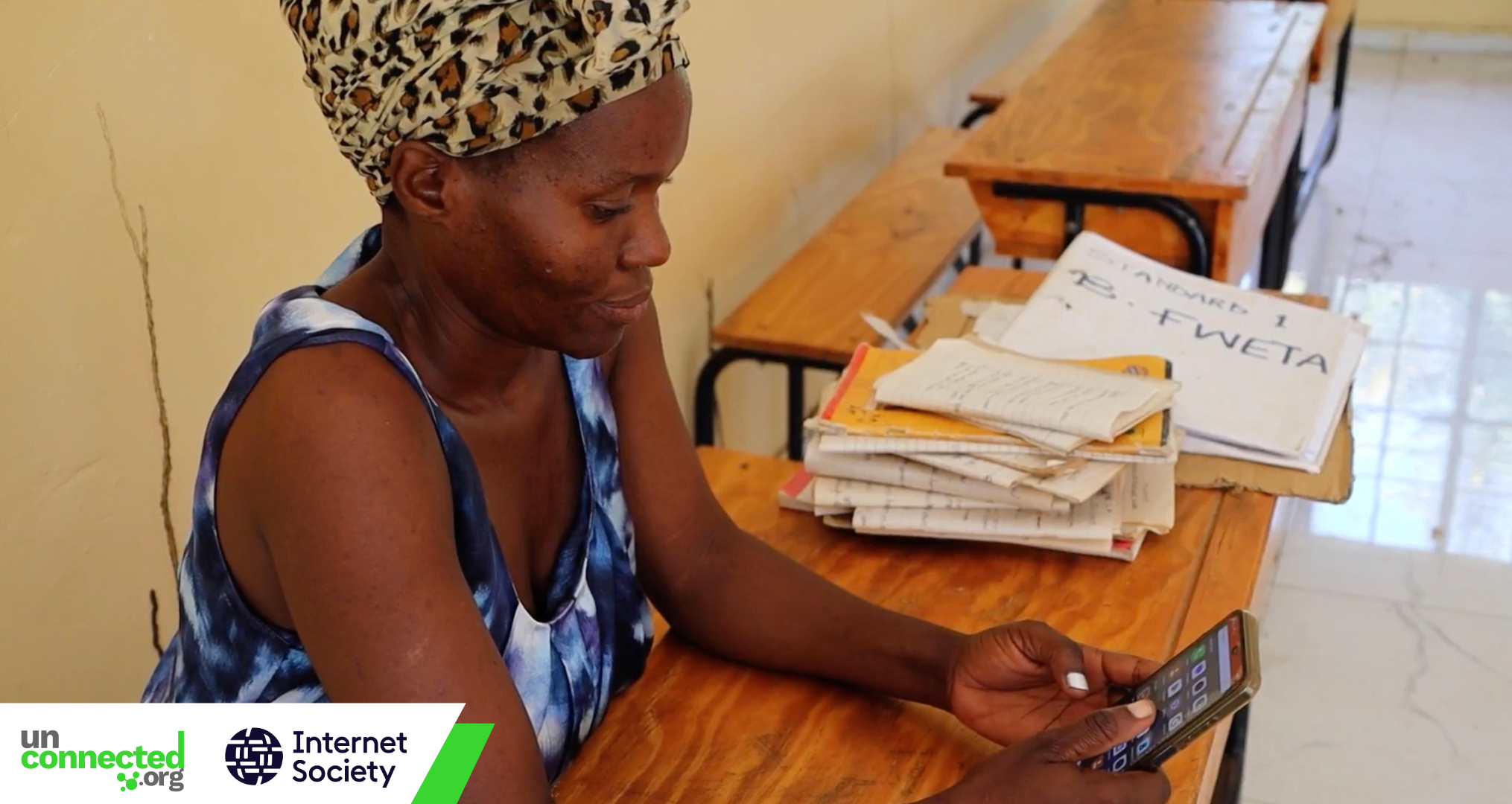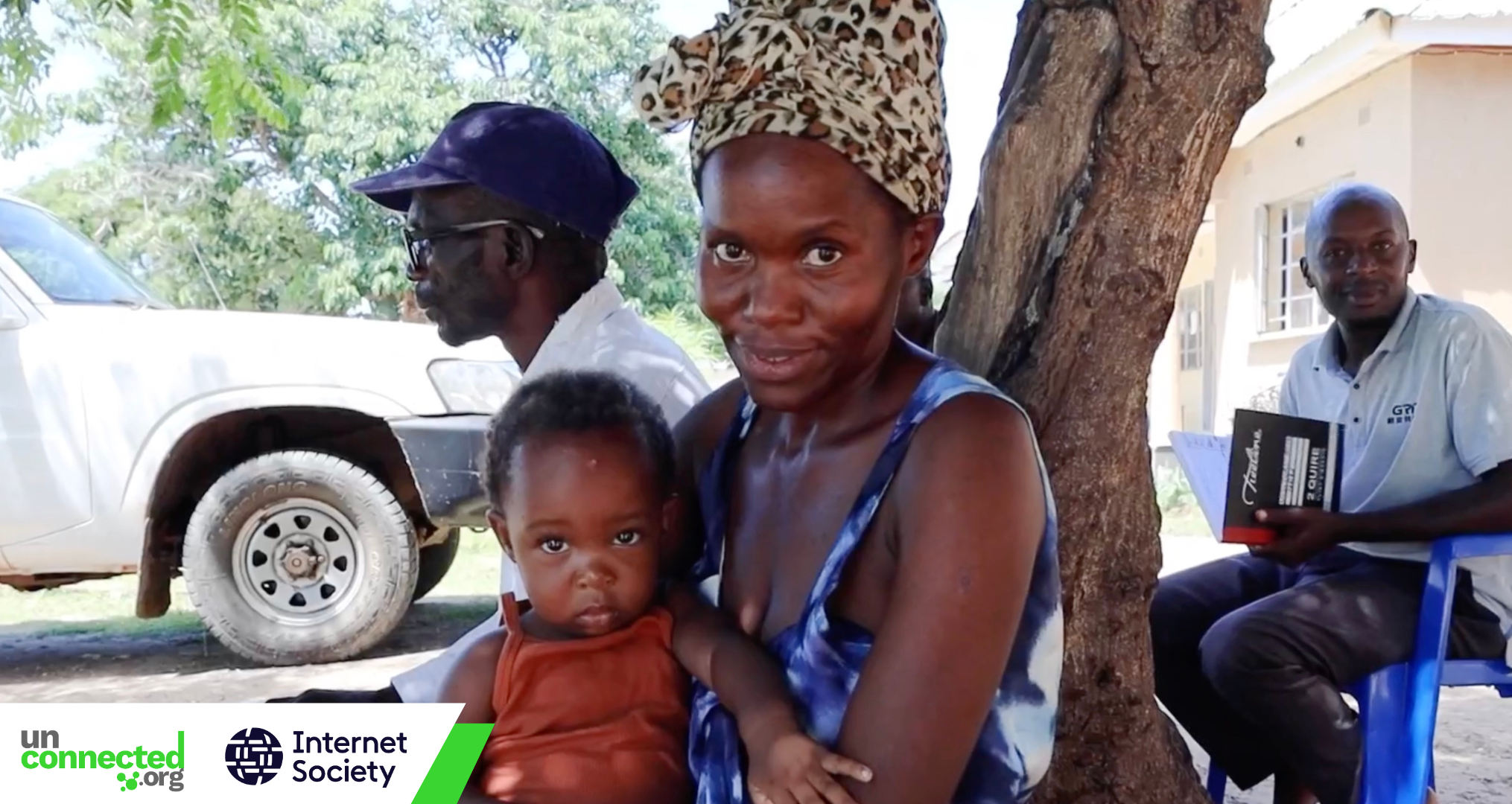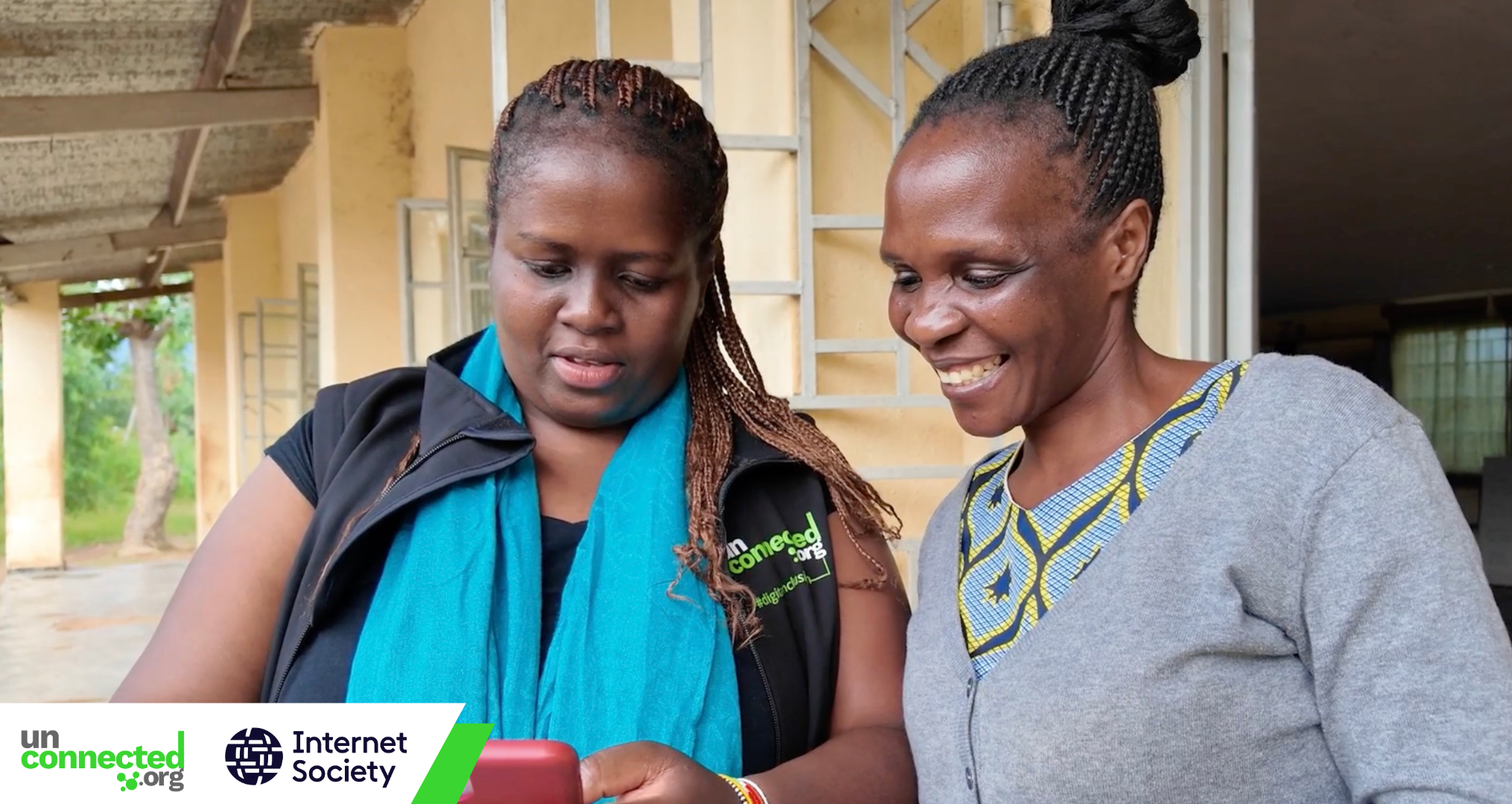Breaking Barriers: Women Driving Digital Empowerment in Malawi
For many in rural Malawi, getting online has always been a challenge. Mobile data is expensive, internet speeds are slow, and most schools and homes have had no access at all. But that reality is beginning to change. In Northern Malawi, a new community-based model is helping schools and villages get connected in a way that is both affordable and sustainable.
This initiative, led by unconnected.org with the support of the Internet Society Foundation’s BOLT Grant Program, is about much more than connectivity. It is opening up opportunities for learning, entrepreneurship and empowerment, particularly for women and girls who have often been excluded from digital spaces.
Challenging Stereotypes
Alifane Msowoya, a teacher in Malawi, has seen first-hand how damaging stereotypes can be.
“Here in Malawi, the barriers that women face are stereotypes and misconceptions of what they are able to do and what they are not able to do. In Malawi, females are regarded as inferior. As a teacher, I want to help my country. I want to help the kids in Malawi so that they learn,” Alifane explains.
In her classroom, she watches her female students embrace subjects such as English, Mathematics, Biology, and Agriculture with enthusiasm. With access to the internet, they now have the ability to look beyond their textbooks, to discover ideas from around the world, and to imagine a future that might once have felt out of reach.
A Student’s Perspective
One of those students, Ruth Mwenelupembe, is already dreaming of her future career.
“I want to study Social Science and become a journalist. When we can use that computer, it is very good for our education. Every woman has a right to use that technology,” Ruth shares
Connectivity has given Ruth and her classmates access to knowledge and examples of women who have succeeded in their chosen fields. Seeing these role models helps them picture what is possible for themselves.
A Model that Lasts
The project’s approach is simple yet powerful. Schools act as central hubs for connectivity, providing free access for students and teachers, while a surrounding Wi-Fi network allows nearby communities to connect at very low cost through prepaid vouchers. Income generated from this system stays local, helping to sustain the network and build community ownership.
Training has also been a key component. Teachers, particularly women, have been equipped with digital skills and online safety awareness, helping them to use the internet confidently in their teaching and to inspire the next generation of girls.
The Road Ahead
Every woman deserves the opportunity to use technology to learn, to grow, and to shape her future. For teachers like Alifane and students like Ruth, connectivity has already begun to break down barriers and change what feels possible. And as more women gain confidence online, entire communities are strengthened.
This progress is only possible through the support of partners like the Internet Society Foundation’s BOLT Grant Program, whose backing has been critical in expanding access and enabling sustainable models of connectivity across Malawi.



